Your Guide to Construction, Renovation, and Zoning Laws in Georgia

Construction, renovation, and zoning laws can put a wrench in an investor's plans. Although investing in Georgia real estate may be a great way to make a living, Georgia has many property-related regulations regarding construction, renovation, and zoning that you need to know about. To begin with, Georgia has over 3.2 million residential properties and 17,049 commercial properties. According to the U.S. Census Bureau, Georgia has a total of 4,668,859 housing units across the state.
Property-related laws fall into two general categories: state-level and local (town/city/county/municipality). Each state divides property law responsibilities between these two entities; some laws fall under the jurisdiction of the state, while others fall under the jurisdiction of local government. Under each main category, there are many different rules and regulations to review.
State Level (Regulations & Codes)

Typically, state-level property regulations refer to building codes and minimum safety standards. Georgia's construction and building laws are primarily based on the International Building Code (IBC). The Georgia State Minimum Standard Building Code is based on the 2018 edition of the IBC, with Georgia-specific amendments. Additionally, Georgia uses the National Electrical Code (NFPA 70) for electrical installations. Local jurisdictions can build upon the state code and add their own amendments that strengthen the laws without weakening them. Local cities and counties enforce building codes within their jurisdiction. The penalties for building code violations are fines, suspension, or revocation of contractor licenses.
The Georgia Department of Community Affairs (DCA) oversees, reviews, and revises Georgia's state building codes. The Office of the Commissioner of Insurance and Safety Fire oversees fire safety codes and regulations. Local building or planning departments are responsible for enforcing building codes, including plan examination, permit processing, and inspections.
The building laws in Georgia include:
-
International Building Code (IBC) 2018 Edition
-
International Residential Code (IRC) 2018 Edition with Georgia Amendments
-
International Fire Code (IFC) 2018 Edition
-
International Plumbing Code (IPC) 2018 Edition with Georgia Amendments
-
International Mechanical Code (IPC) 2018 Edition with Georgia Amendments
-
International Fuel Gas Code (IPC) 2018 Edition with Georgia Amendments
-
National Electrical Code 2023
-
International Energy Conservation Code, 2015 Edition, with Georgia Supplements and Amendments
-
International Swimming Pool and Spa Code, 2018 Edition, with Georgia Amendments
Construction
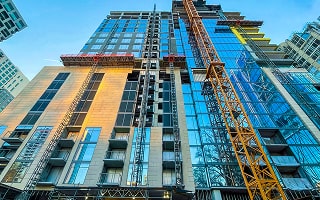
Georgia's construction laws encompass a range of aspects, including licensing, residential construction defect claims, and contract disputes. There is also a requirement for a pre-litigation process for resolving construction defect claims in new homes. Additionally, contractors working on projects costing more than $2,500 are required to be licensed.
Some of the key construction laws in Georgia include:
-
Contractor Licensing: In Georgia, individuals or businesses working on residential construction projects costing more than $2,500 are required to be licensed as either a general or residential contractor.
-
Residential Construction Defects: Georgia's Right to Repair Act mandates that homeowners must engage in a specific pre-litigation process before filing a lawsuit against contractors. The process includes providing written notice to the contractor about the defects and allowing them an opportunity to fix the issues.
-
Construction Contracts: Georgia law outlines the framework for construction contracts, which must include clauses related to the financial and operational aspects of the relationship. Contracts are legal documents that regulate the interactions among parties involved in the construction activities and must be respected.
-
Statute of Limitations: The statute of limitations for contract disputes in Georgia varies depending on whether the contract is written or oral. Written contracts have a 6-year statute of limitations from the date of the breach, and oral agreements have a 4-year statute of limitations.
-
Notice to Contractor: Georgia law requires subcontractors working within the state to provide a "notice to contractor" within 30 days of starting work or delivering materials. The notice must be sent via certified mail to both the homeowner and the general contractor.
-
Construction Activity Regulations: The Law of Georgia on Construction Activity defines the legal, organizational, and economic aspects of construction activities within the state. It also standardizes and regulates construction norms.
-
Working Hours: In Georgia, construction work is generally permitted from 7:00 a.m. to 7:00 p.m. on weekdays and from 8:00 a.m. to 5:00 p.m. on Saturdays. No work is allowed on Sundays or federal holidays.
Commercial Structures

Georgia law governing commercial construction projects primarily revolves around contracts, statutes of limitations, and the enforcement of building codes and standards. Some of the most crucial aspects include contract disputes, construction defect claims, and ensuring compliance with the National Electrical Code throughout the project. Even though Georgia's Right to Repair Act primarily governs residential contracts, it can also apply to commercial projects.
Some highlights of commercial structure laws in Georgia include:
- Contract Disputes: Georgia law distinguishes between oral and written contracts when it comes to the statute of limitations for breach of contract claims. A lawsuit for breach of a written construction contract must be filed within six years of the breach. Lawsuits for breach of oral construction agreements must be filed within four years of the breach.
- Construction Defect Claims: Georgia has a statute of repose for construction defect claims, which means there is a specific time limit for bringing such claims. Claims related to construction defects must be brought within eight years of the project's substantial completion. This applies regardless of how the claim is characterized (e.g., negligent construction, fraud, etc.).
- Building Codes: All commercial construction projects must adhere to the National Electrical Code (NEC) and other state-adopted codes. Georgia currently uses the 2023 NEC, effective January 1, 2025. Building codes are enforced at the local level, meaning specific requirements may vary based on the municipality.
- Right to Repair Act: While primarily for residential construction, the Georgia Right to Repair Act establishes a mandatory process for resolving disputes before litigation.
- Notice and Opportunity to Repair: Homeowners must provide contractors with written notice of defects and an opportunity to fix them before pursuing legal action. While this law is primarily geared toward residential construction, it can also impact commercial projects.
Residential Structures

Georgia has specific laws regarding residential construction, including licensing requirements, working hours, and a Right to Repair Act for defect disputes. Homeowners can act as their own contractors under certain conditions, but must still adhere to local building codes and regulations.
Some of the highlights of residential construction laws in Georgia include:
- General Contractors: Any individual or business working on residential construction projects exceeding $2,500 must be licensed as a general or residential contractor.
- Homeowner as Contractor: Homeowners can act as their own contractors for their primary residence, provided they meet specific criteria, such as living in the residence and not having applied for a permit at another address within the last two years.
- Specific Licenses: There are different license classifications, such as Residential Basic Contractor, which allows work on detached one- and two-family residences and townhouses.
- Working Hours: Construction activity is generally permitted between 7:00 a.m. and 7:00 p.m. Working hours are typically 8:00 a.m. to 5:00 p.m., Monday through Friday. Construction is prohibited on Sundays and federal holidays.
- Right to Repair Act: Georgia's Right to Repair Act establishes a mandatory pre-litigation process for resolving disputes related to construction defects. Homeowners must provide contractors with written notice of alleged defects and allow them a reasonable opportunity to rectify the issues before filing a lawsuit.
- Contract Disputes: Georgia law has specific statutes of limitations for contract disputes, with 6 years for written contracts and 4 years for oral agreements.
Although Georgia does not require a license to build your own home, homeowners should still check in with their local building authorities to ensure they are complying with all applicable building codes and regulations for that area.
Safety Standards

Georgia safety laws regarding construction primarily focus on protecting workers' health and safety by adhering to OSHA standards and other state regulations. These laws are designed to provide a safe working environment, including providing workers with appropriate protective equipment, notifying workers about chemical hazards, and establishing procedures for filing safety complaints. Additionally, Georgia has specific laws governing residential construction defects, as well as plumbing and electrical codes.
Some of the key aspects of Georgia construction safety laws include:
- OSHA Standards: Georgia requires employers to comply with safety standards set by the Occupational Safety and Health Administration (OSHA).
- Protective Equipment: Employers must provide their employees with necessary and appropriate safety equipment at no cost.
- Hazard Communication: Workers have the right to be informed about any hazardous chemicals present at the worksite. Employers must provide safety data sheets for all materials on-site.
- Complaint Procedures: Workers can file complaints with OSHA if they believe their employer is violating safety regulations.
- Workers' Compensation: Construction workers in Georgia who are injured on the job can seek workers' compensation benefits, which include medical expenses, lost wages, and rehabilitation support.
- Liability: If an employer fails to maintain a safe workplace and a worker is injured as a result, the employer may be held liable under workers' compensation and potentially in a civil lawsuit.
Along with the list of safety regulations, Georgia also requires that all job sites comply with state-specific amendments to the International Plumbing Code (IPC), the International Residential Code (IRC), and the 2023 National Electrical Code (NEC) to ensure the safety of homeowners and the public.
Building Codes
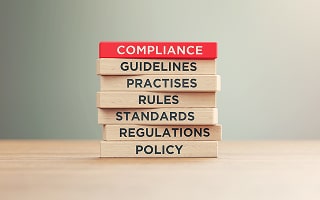
Georgia primarily uses the 2018 edition of the International Building Codes, in some cases with its own amendments. The complete list of building codes used in Georgia consists of:
- 2018 International Building Code with Georgia Amendments
- 2018 International Existing Building Code with Georgia Amendments
- 2018 International Fuel Gas Code with Georgia Amendments
- 2018 International Mechanical Code with Georgia Amendments
- 2018 International Plumbing Code with Georgia Amendments
- 2018 International Property Maintenance Code with Georgia Amendments
- 2018 International Swimming Pool and Spa Code with Georgia Amendments
- 2018 International Residential Code with Georgia Amendments
- 2015 International Energy Conservation Code with Georgia Amendments
Asbestos Laws

Georgia has strict regulations regarding construction projects that involve disturbing asbestos. Georgia asbestos contractors are required to hold licenses to operate and must submit a Project Notification to the Environmental Protection Division (EPD) before commencing work. All workers and supervisors involved must undergo training on asbestos handling and disposal. Keeping asbestos-containing materials wet during work is crucial to prevent the release of asbestos fibers.
Some of the highlights of these laws are:
- Wet Removal: Asbestos-containing materials must be kept wet during removal or disturbance to minimize the release of airborne fibers.
- Permissible Exposure Limit (PEL): Contractors must ensure that no employee is exposed to airborne asbestos concentrations exceeding 0.1 fibers per cubic centimeter (f/cc) during an eight-hour period.
- Excursion Limits (EL): The excursion limit for asbestos exposure is 1.0 fiber per cubic centimeter over 30 minutes.
- EPA Oversight: The Environmental Protection Agency (EPA) primarily oversees asbestos regulations for commercial and residential structures with more than four dwelling units.
- Residential Demolition and Renovations: According to Georgia law, residential structures or portions undergoing demolition or renovation must be inspected for the presence of asbestos.
- Safe Practices: The best practice is to leave asbestos-containing materials in good condition and not disturb them.
- Mesothelioma Claims: Individuals diagnosed with mesothelioma in Georgia may be able to file a civil lawsuit against those responsible for their asbestos exposure, though this can be complex due to potential long latency periods.
Contractor Licensing Laws

In Georgia, both residential and commercial general contractors must be licensed by the State Licensing Board for Residential and General Contractors to perform or offer contracting services for jobs costing $2,500 or more. The licensing process involves demonstrating experience, financial stability, and insurance, followed by passing required exams, according to Georgia contractor license information. Georgia offers three tiers of general contractor licenses: Residential Basic, Residential Light Commercial, and Unlimited.
The licensing requirements include:
-
Experience: Applicants must demonstrate relevant construction experience. Two years for residential basic and four years for general contractors, including commercial projects, are common.
-
Financial Requirements: Unlimited-tier contractors must have a net worth of $150,000, while residential and limited-tier contractors require a net worth of $25,000.
-
Insurance: Georgia requires proof of general liability insurance, with the State Licensing Board listed as the certificate holder.
-
Application Process: The application process involves submitting the necessary forms, paying the application fees, and providing documentation of experience, financial standing, and insurance.
-
Testing: Georgia requires contractors to pass the NASCLA Accredited Examination for Commercial General Building Contractors. A separate exam covering business and law principles is also required. Contractors must get a passing score on both exams to qualify for a license.
You can verify a contractor's license on the Georgia Secretary of State website. Georgia does not require a separate handyman license. Independent contractors need a business license before starting work.
Insurance & Bonds
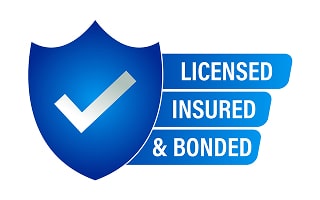
The State Licensing Board for Residential and General Contractors requires general contractors to have liability insurance to protect against property damage and bodily injury claims that may arise from contracting work. Those with three or more employees are also required to carry workers' compensation insurance to protect employees who are injured on the job. It pays for medical expenses, lost wages, and rehabilitation costs.
In Georgia, contractors are generally required to have a $25,000 surety bond to obtain a license as a residential or general contractor. This requirement is mandated by Georgia Code Statute 43-41. In addition to the state requirement, individual cities and counties may have their own specific bond requirements for licensing.
Depending on the project and contract, contractors may also need to secure bid, performance, and payment bonds.
The cost of a surety bond typically ranges from 1% to 10% of the bond amount, with the premium influenced by factors like the contractor's credit score.
Public Works Contracts/Public Bidding

Public works projects can improve infrastructure, facilitate trade and travel, boost local economies, and improve access to essential services like healthcare and education. Public works generally refer to construction projects sponsored and carried out by governmental entities. These can include infrastructure projects like roads, bridges, hospitals, and public buildings.
Georgia laws governing public works projects focus on retainage and bonding requirements.
Recent changes in Georgia law, specifically Senate Bill 438, limit retainage to 5% on most public works projects and projects involving water and sewer facilities. Additionally, House Bill 137 proposes revisions to bonding requirements for public works projects.
Public works projects are subject to the Right to Repair Act, establishing a pre-litigation process for resolving construction disputes.
Georgia law, specifically Title 13, Contracts, outlines the requirements for valid contracts. For a contract to be valid, there must be parties able to contract, consideration, mutual assent, and a valid subject matter.
Georgia public works projects use a competitive bidding process where potential vendors submit bids, and the government office chooses the best option. Georgia's Little Miller Act dictates bonding requirements for public works projects, and contractors need to ensure they meet these requirements when preparing their bids. The bidding process works as follows:
- An Invitation to Bid (ITB) is issued outlining the project requirements, deadlines, and other relevant information.
- Contractors prepare their bids, which include obtaining quotes from suppliers, calculating costs, and ensuring compliance with all project specifications.
- Contractors submit their bids by the deadline, often electronically, through the designated platform.
- The awarding entity evaluates the bids based on factors like price, qualifications, experience, and adherence to the ITB.
- The contract is typically awarded to the lowest qualified bidder, meaning the one that meets all the requirements and provides the best value.
Renovations

Renovations can restore something to its original state or improve it drastically. Georgia law requires residential or commercial general contractors who perform renovations or any work valued over $2,500 to have a contractor's license. Homeowners can act as their own contractors for their primary residence, provided they are not applying for permits at another address within two years.
Other renovation laws in Georgia include:
- Right to Repair Act: Renovations are also subject to Georgia's Right to Repair Act, which requires a pre-litigation process for construction defect disputes, meaning that homeowners must notify contractors of defects and allow them to fix issues before filing a lawsuit. If the contractor chooses to correct the defect, they must offer a written proposal within 14 days of inspection, outlining the extent of repairs or monetary settlement.
- Handyman Services: Handymen can perform minor maintenance and repair work to homes in Georgia without a contractor's license. Some examples would be replacing a toilet, changing light fixtures, or woodwork. However, the scope of work must be limited to jobs that do not require a state contractor's license.
Environmental Laws

Georgia has a set of laws regarding the environment and construction. These laws focus on protecting air, water, and land during development activities. Some are related to erosion and sediment control, stormwater management, and waste disposal. The Georgia Department of Natural Resources (GA DNR) and the Environmental Protection Division (EPD) regulate these types of projects and require permits for much of this work.
Some of the key environmental laws in Georgia include:
- Erosion and Sedimentation Control: The GA DNR requires contractors to obtain permits for land-disturbing activities and mandates the implementation of best management practices to minimize erosion and sedimentation runoff.
- Stormwater Management: Construction projects must comply with stormwater management regulations to prevent pollution of waterways. This often involves developing and implementing a Stormwater Pollution Prevention Plan (SWPPP).
- Waste Management: All Georgia construction activities must adhere to regulations regarding the proper disposal of construction waste and debris.
- Air Quality: The Georgia Clean Air Act regulates emissions from construction equipment and activities to minimize air pollution.
- Endangered Species Act: Construction projects may need to consider potential impacts on endangered or threatened species, as regulated by the Endangered Species Act.
- National Environmental Policy Act (NEPA): Federal Georgia construction projects require an environmental assessment supervised by NEPA to evaluate potential environmental impacts.
- Land-Disturbing Permits: The GA EPD issues land-disturbing permits for construction projects that involve significant ground disturbance.
- SWPPP: Construction projects must have a Stormwater Pollution Prevention Plan (SWPPP) that outlines measures to control stormwater runoff and prevent pollution.
- Inspections and Enforcement: The GA DNR inspects construction sites to ensure compliance with environmental regulations and may take enforcement actions for violations.
Contractors must review and adhere to the comprehensive construction code program enforced by local governments. Georgia also has a statute of repose for construction defect claims, which limits the time within which such claims can be filed. Local governments in Georgia may have additional environmental regulations related to construction.
Solar Regulations
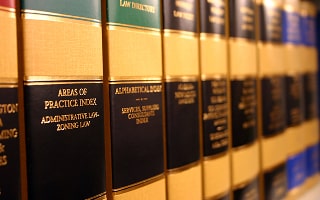
Georgia's solar energy regulations involve a mix of state and local laws focusing on system size, building permits, and decommissioning requirements. State law allows for solar easements and encourages community solar programs, while local governments often regulate system placement, height, and screening. Building permits and interconnection agreements with utilities are generally required for solar panel installations.
Some of the solar regulations in Georgia include:
-
System Size and Interconnection: Georgia Power, for example, limits the size of residential solar facilities to 10kW, and the facility's size should not exceed 125% of the customer's peak demand. Interconnection with the utility grid requires a separate permit.
-
Building Permits: All solar energy system installations in Georgia require a building permit. Depending on the type of system (solar electric or solar water heating), the property owner may need to obtain additional permits (electrical or plumbing).
-
Local Rules: Local governments often have specific regulations regarding solar energy systems, including placement, height, and screening requirements. For example, Wayne County requires a six-foot high fence and may require vegetative screening or privacy fences to obscure solar panel perimeters.
-
Decommissioning: Georgia's Solar Power Facility Act requires solar developers to be responsible for decommissioning their facilities upon lease termination, including removal of foundations, cables, overhead lines, and certain roads and rocks.
-
Community Solar: The Georgia Homegrown Solar Act of SB203 establishes a community solar program allowing customers to participate in off-site solar facilities.
-
Solar Easements: Georgia law allows for solar easements, which enable system owners to negotiate their access to sunlight.
-
Off-Grid Living: While off-grid living is legal, county regulations can vary significantly.
-
HOA Restrictions: Georgia has no state-level HOA-restrictive solar access laws.
-
Tax Credits and Rebates: Georgia does not have state-level solar tax credits or rebates, but homeowners can take advantage of the federal Investment Tax Credit (ITC).
Homeowners and businesses looking to install solar energy systems in Georgia need to be aware of both state and local regulations.
Gas/Oil

New construction and replacement gas/oil heating systems are regulated in Georgia by various codes and always require permits for installation and major repairs. The International Mechanical Code (IMC) governs the installation of mechanical systems, including heating, ventilation, and air conditioning. Gas and oil systems fall under the purview of the IMC and require permits for work on gas supply systems.
Some of the highlights of these laws are as follows:
-
Permits: A mechanical permit is required for all work on heating, ventilation, and gas supply systems. A permit is generally required for all new installations and repairs of electrical, plumbing, gas, and mechanical systems. Minor repairs can be exempt, but the building official determines this.
-
International Mechanical Code (IMC): The IMC, specifically Chapter 3, regulates the installation of all equipment and appliances within building mechanical systems, including heating and cooling systems.
-
Energy Efficiency: The IMC mandates that heating, ventilation, and air-conditioning systems be designed and installed for efficient energy use, per the International Energy Conservation Code.
-
Cooling Towers: Cooling towers in new construction must comply with ASHRAE Standard 90.1.
-
Inspections: The Office of Insurance and Safety Fire Commissioner is responsible for inspecting boilers and pressure vessels.
-
Boiler Installations: The Office of Insurance and Safety Fire Commissioner also issues Certificates of Authority to companies or individuals who install, maintain, or service boilers.
-
Mechanical Permits: Mechanical permits are required for all work on gas supply systems.
-
Water Heaters: Water heaters fall under the plumbing and gas codes and require permits and inspections for safe installation.
-
Homeowners as Contractors: Homeowners can act as their contractors for some projects, but a licensed contractor is required for the other unit in a duplex.
-
Electrical Work: As it pertains to oil/gas heating systems, the National Electrical Code, along with Georgia State Amendments, serves as the minimum standard for electrical work.
-
Plumbing Work: The International Plumbing Code, with Georgia State Amendments, is the minimum standard for plumbing work.
Electricity

In Georgia, electrical work during construction, including new installations and repairs, generally requires a permit, but the local building official must determine that. The state uses the 2020 National Electrical Code (NEC) as the minimum standard, with specific Georgia State Amendments. Some minor repairs may be exempt from permitting, as defined by the building official.
Building officials in each jurisdiction can provide specific information on permitting requirements and local ordinances governing electricity in construction and renovations. Georgia Power is the largest electric utility in the state, serving the majority of Georgia's counties. Businesses with a new connected load of 900 kilowatts or greater can choose their electricity supplier.
Government Housing Programs
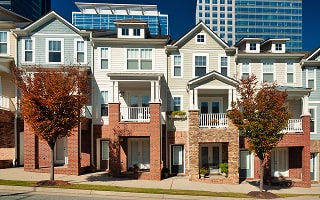
Georgia offers several government-funded housing programs designed to help low-income individuals and families afford safe and stable housing. These include the Housing Choice Voucher Program (formerly Section 8), which provides rental assistance, and the Georgia Dream Homeownership Program, which offers down payment assistance and affordable mortgage financing. Additionally, there are programs like Public Housing and Permanent Supportive Housing that offer different types of assistance.
The programs offered by Georgia include:
- Housing Choice Voucher Program: This program, funded by the U.S. Department of Housing and Urban Development (HUD), provides rental assistance to low-income individuals and families, enabling them to rent safe, decent, and affordable housing in the private market. The program is tenant-based, meaning the voucher follows the individual or family, allowing them to choose their housing unit, including single-family homes, apartments, and townhouses. To be eligible, applicants must meet certain income and family size requirements, with income typically limited to 50% of the area median income. Local housing authorities, such as the Atlanta Housing Authority and various city and county housing authorities throughout the state, administer the program.
- Georgia Dream Homeownership Program: This program, administered by the Georgia Department of Community Affairs (DCA), offers down payment and closing cost assistance to eligible first-time homebuyers, public service workers, and individuals with disabilities. It also provides affordable mortgage financing options to help make homeownership more attainable. Eligibility requirements include income limits, credit score requirements, and meeting the definition of a first-time homebuyer (or qualifying for one of the other eligible categories).
- Public Housing: Provides affordable rental housing for low-income families, older adults, and persons with disabilities, often in the form of apartments or single-family homes.
- Permanent Supportive Housing: Offers long-term housing with supportive services to individuals experiencing homelessness and who have a disability.
- Georgia Housing Voucher Program (GHVP): A state-funded program that provides rental assistance and support services to help eligible individuals with disabilities find and maintain stable housing, to promote long-term recovery and independence.
- Fair Housing Act: This act guarantees that all Georgians can access housing opportunities without discrimination based on factors like race, religion, sex, or disability.
Property Tax Credits and Incentives
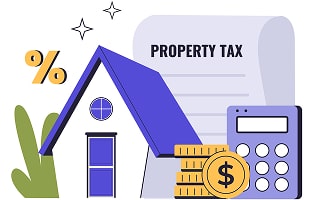
Many Georgia residents need assistance paying for property taxes. The state of Georgia has several property tax credits/exemptions and incentives to encourage growth and new construction.
The state has two property tax incentive programs, they are as follows:
-
Preferential Property Tax Assessment: This freezes the county property tax assessment for more than 8 years. Principal residences as well as income-producing properties are eligible. The owner must increase the fair market value of the building by 50 - 100%, depending on its new use.
-
State Income Tax Credit Program for Rehabilitated Historic Property: This program allows eligible participants to apply for a state income tax credit equaling 25 percent of qualifying rehabilitation expenses, capped at $100,000 for a principal residence, and $5 million or $10 million for all other properties.
The Georgia Department of Revenue also offers some Homestead Exemptions, and they are:
-
Standard Homestead Exemption: The person must occupy the home, and it has to be their legal residence. It reduces the assessed value by $2,000 for the tax year, thus lowering the property tax burden.
-
Seniors (65+): Seniors over the age of 65 may claim a $4,000 property tax exemption.
-
Seniors 62 Educational Exemption: Seniors age 62 may claim an additional exemption from property taxes for educational purposes and to retire school bond indebtedness if their income and that of their spouse does not exceed $10,000 for the previous year.
-
Disabled Veteran or Surviving Spouse: Qualified disabled veterans or their spouses may claim an exemption up to the maximum amount of $121,812. Any assessed value over that will be taxed accordingly.
-
Surviving Spouse of a U.S. Service Member: Any unremarried surviving spouse of a member of the armed forces who was killed in or died as a result of any war or armed conflict will be granted a homestead exemption of $60,000 plus an additional sum set by the United States Secretary of Veterans Affairs. As of 2025, that amount is $121,812.
-
Surviving Spouse of Peace Officer or Firefighter: The unremarried surviving spouse of a peace officer or firefighter killed in the line of duty can claim a homestead exemption for the full value of the homestead for as long as the applicant occupies the residence as a homestead.
All Homestead applications must be filed with the local tax commissioner's office or tax assessor in some counties. Contact the local property tax office or the Department of Revenue for more information.
Local Level (Permits and Regulations)
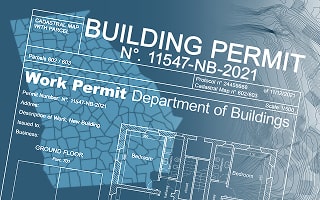
While the state of Georgia sets minimum standards and building codes, each local jurisdiction (cities, towns, and counties) sets its own laws. They adopt the state's building codes and can strengthen them with local amendments. They also enforce building codes through permits and inspections. Local jurisdictions set zoning laws as well, which govern how the land can be used in specific areas.
Building-Friendly Areas of Georgia

As with any state, there are places in Georgia where it's easier to build and those that are harder. Many factors affect the building of new construction and renovations. Overall, most new homes are constructed in the Atlanta metropolitan area, specifically in suburbs like Alpharetta, Sandy Springs, and Woodstock. Other regions like Savannah and Macon also have laws and zoning that make it easier to build. Many of these areas also offer attractive amenities like pools, parks, and community spaces. North Georgia Highlands is a good place to build a tiny home due to friendly zoning laws and accessibility to urban amenities.
Where to Obtain Georgia Building Permits

In Georgia, building permits are obtained through local municipalities or counties. Depending on the type of project or location, the office where you get building permits from varies. For example, in Gainesville, permits are obtained through the Accela Citizen Access Portal. In Peachtree Corners, the Department of Community Affairs (DCA) website or office provides information. Gordon County has a specific Building Inspection Office. Sometimes you must contact the Georgia Office of Insurance and Safety Fire Commissioner (OCI).
The general steps to obtaining a Georgia building permit are:
- Determine the location of the project and the proper permitting office.
- Check online portals or visit offices in person to download or fill out an application.
- Research the application requirements and fees. Typically, you must submit building plans, supporting documents, and a fee.
- Submit your application and wait for approval.
- Once approved, schedule your first inspection.
The available types of building permits in Georgia include:
- Building Permits: Required for most construction and renovation projects.
- Mechanical Permits: For HVAC and other mechanical systems.
- Electrical Permits: For electrical wiring work, both new and alterations.
- Plumbing Permits: For plumbing work.
- Accessory Building Permits: For sheds, garages, and other detached structures.
- Land Disturbance Permits: For site development and land clearing.
- Demolition Permits: For demolishing existing structures.
- Manufactured Home Permits: For new and pre-owned manufactured homes.
Some links to other building departments in Georgia include:
- Athens-Clarke County Building Permits & Inspection Department
- Augusta Building Permits
- Carroll County Building Permits
- City of Atlanta Office of Buildings
- City of Douglas Building Inspections & Permits Division
- Cobb County Building Permit Office
- Douglasville Building Permits & Inspections
- Forsyth County Permitting
- Liberty County Building and Licensing
- Stonecrest Building Department
During the permitting process, the building inspector must inspect the work being performed. They may do this before, during, and after the project to ensure the work complies with all local building codes to keep people safe. Depending on the city or county's rules, you may schedule your inspections through the online portal, by phone, or by email.
Zoning Laws
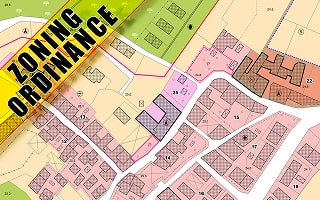
Zoning laws in Georgia dictate how land can be used within a specific area, impacting building types, lot sizes, and other development aspects. These laws ensure community order, protect property values, and manage development density.
Zoning Procedures Law (ZPL) requires that local governments adopt ordinances detailing zoning policies and procedures before implementing specific zoning ordinances.
Local governments have the power to make zoning decisions, but these decisions can be challenged in court. To challenge a zoning decision, neighboring property owners generally need to demonstrate a "substantial interest-aggrieved citizen" status, often requiring proof of harm like property value reduction or increased noise and odor. Challenges to zoning decisions are typically considered judicial reviews "on the record", meaning the court reviews the local government's decision-making process.
Some of the zoning designations used for land throughout Georgia include:
-
Residential Zones
R-1 (One-Family Residential): Permits single-family detached dwellings, often with minimum lot size and width requirements (e.g., 15,000 square feet and 100 feet wide in Augusta, GA).
R-A (Residential Agricultural): Provides areas for both residential and agricultural uses, allowing for single-family homes alongside areas for commercially grown products.
-
Commercial Zones
B-1 (Neighborhood Convenience Commercial): Allows for businesses that serve the immediate neighborhood, such as small grocery stores or dry cleaners.
-
Agricultural Zones
A-1 Agricultural: Intended for intensive farming and related activities.
Related Links and Enforcement Offices

When it comes to Georgia construction, renovation, building, and housing regulations, many government departments and agencies standardize, regulate, and enforce building rules. There is some overlap with their duties, but most in Georgia are on the local level. The state agencies tend to set broad minimum standards, and then the cities, towns, and counties customize and adopt from there.
The links below provide detailed information on the state's construction, zoning, renovating, and housing rules.
Other Helpful Links
- International Building Code (IBC)
- Georgia State Minimum Standard Building Code
- National Electrical Code (NFPA 70)
- Georgia Department of Community Affairs (DCA)
- Office of the Commissioner of Insurance and Safety Fire
- Georgia's Right to Repair Act
- Law of Georgia on Construction Activity
- National Electrical Code (NEC)
- Occupational Safety and Health Administration (OSHA)
- Georgia Building Codes
- Environmental Protection Agency (EPA)
- Licensing Board for Residential and General Contractors
- NASCLA Accredited Examination for Commercial General Building Contractors
- Georgia Secretary of State
- Georgia Department of Natural Resources (GADNR)
- Environmental Protection Division (EPD)